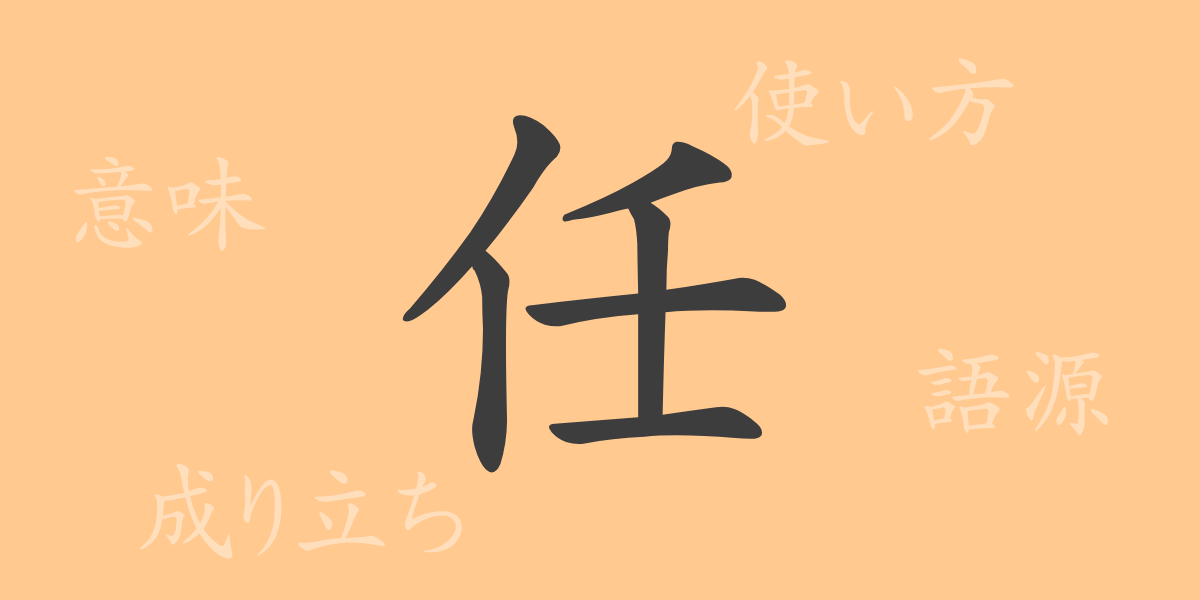Japanese writing culture is profound, with commonly used Kanji deeply integrated into the daily lives of the Japanese people. ‘任 (ニン)’ is one such Kanji, widely used from business contexts to everyday conversations. This article delves into the etymology, meanings, and usage of ‘任’, exploring its origins, associated idioms, and proverbs to uncover its full scope.
Origins of ‘任 (ニン)’
The Kanji ‘任’ can be traced back to ancient Chinese oracle bone scripts. Originally depicted as ‘壬’, it illustrated a person carrying a load. Over time, it evolved into its current form. The act of carrying a load has metaphorically extended to mean ‘to bear responsibility’ and ‘to entrust.’
Meaning and Usage of ‘任 (ニン)’
‘任’ embodies meanings such as ‘to bear responsibility’, ‘to entrust’, and ‘to appoint’. Commonly used in phrases like ‘任務 (にんむ – mission)’, ‘任期 (にんき – term of office)’, and ‘責任 (せきにん – responsibility)’, it appears frequently in business language. It is also found in expressions such as ‘任せる (まかせる – to entrust)’ and ‘任に当たる (にんにあたる – to undertake a duty)’.
Readings, Stroke Count, and Radical of ‘任 (ニン)’
The Kanji ‘任’ is essential in Japanese and has multiple readings.
- Readings: On’yomi ‘ニン’, Kun’yomi ‘まか.せる’, ‘まか.す’
- Stroke Count: 6 strokes
- Radical: 人偏 (ひとえ – person radical)
Phrases, Idioms, and Proverbs Using ‘任 (ニン)’
There are numerous idioms and proverbs that include ‘任’. For instance, ‘任期満了 (にんきまんりょう – completion of a term)’ refers to the end of a specified term of duty, while ‘責任転嫁 (せきにんてんか – shifting of responsibility)’ denotes the act of blaming others for one’s responsibilities. ‘任侠 (にんきょう – chivalry)’ represents the samurai spirit of honor and humanity.
Conclusion on ‘任 (ニン)’
The Kanji ‘任’ from its origins to its modern applications encapsulates vital social concepts of duty, obligation, and trust. Understanding and effectively using ‘任’ in business and daily communication enhances mutual understanding. This article aims to deepen your appreciation and understanding of ‘任’, enriching your interaction within Japanese society.

























